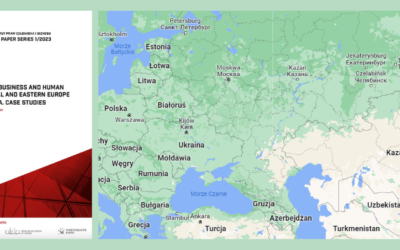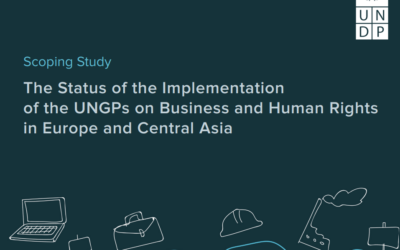Як зазначено в Керівних принципах ООН, належна обачність у сфері прав людини – це процес виявлення, запобігання, пом’якшення та обліковування впливу на права людини. Це включає як реальні впливи, що відбуваються в даний час, так і потенційні впливи, які можуть виникнути в майбутньому. Ключовим компонентом належної обачності у сфері прав людини є змістовна взаємодія із зацікавленими сторонами, зокрема з носіями прав, такими як працівни(ці)ки, члени громади, працівни(ці)ки ланцюгів постачання та споживачі.
Процедура забезпечення належної обачності у сфері прав людини (HRDD) включає чотири ключові компоненти: визначення та оцінка фактичних або потенційних негативних впливів на права людини, які компанія може спричинити, яким може сприяти чи бути безпосередньо пов’язаною з ними; вжиття відповідних заходів та інтеграція результатів оцінки впливу у відповідні процеси компанії; відстеження ефективності заходів з метою оцінки їх ефективності; і спілкування із зацікавленими сторонами про те, якою є реагування компанії на її вплив на права людини, та демонстрування зацікавленим сторонам, що існують відповідні політики та процеси.
Належна обачність у сфері прав людини допомагає компаніям уникнути негативного впливу на права людини і, таким чином, управляти своїми ризиками та репутацією. Компанії, які не реагують належним чином на ризикам у сфері прав людини, можуть зіткнутися з сильним спротивом громади, що в кінцевому підсумку може призвести до втрати іноземних інвестицій та/або повного припинення діяльності.
Для більш детальної інформації див. Human Rights Due Diligence Portal (портал Належної обачності у сфері прав людини) Ресурсного центру з бізнесу і прав людини.






